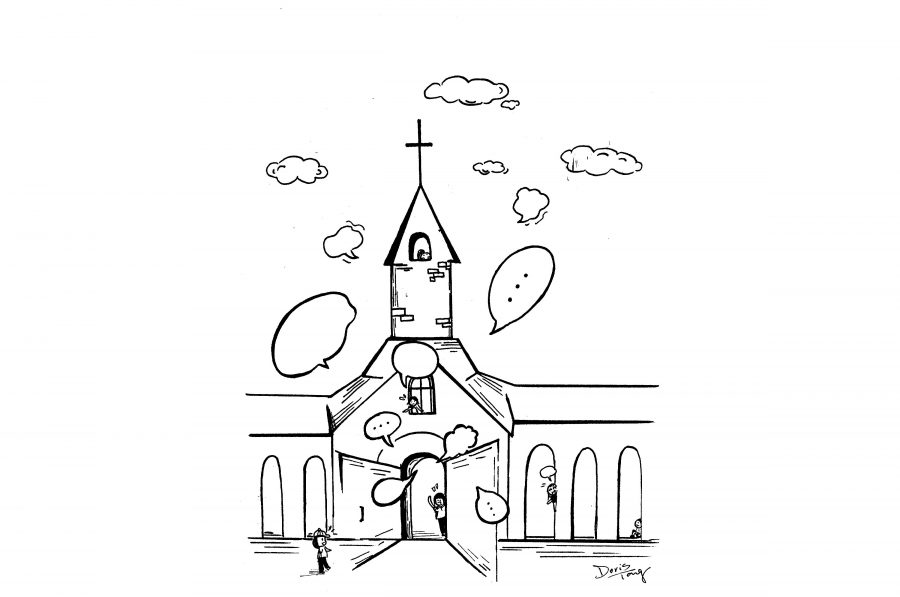On Aug. 26, Archbishop Carlo Maria Viganò, the Vatican’s former ambassador to the United States, penned an 11-page letter. In it, he alleged that Pope Francis knew about sexual abuse accusations against former Cardinal Theodore McCarrick.
McCarrick was the leader of the Archdiocese in Washington D.C. before he resigned in July due to the allegations. The claim against the Pope has reportedly created a deep divide in Catholic leadership, parishes and religious organizations. The crisis in the Church is complicated. It can provoke strong reactions among members of all Christian denominations and faith groups. Nonetheless, UT faith organizations need to openly address the current controversy in the Church. We must allow students to voice their thoughts about the problem and its implications for the future. So far, Pope Francis has refused to comment on the scandal. However, UT organizations must not share his silence. Faith organizations at UT create a way for students to find a campus community and connect with others who share their beliefs and values, but they should also be safe places where students can speak honestly with each other and receive support and care.
Sexual assault and sexual abuse are difficult subjects to face. They make many feel uncomfortable. It may seem easier for students and organization leaders toignore the issue and simply not discuss it. Silence completely disregards the problem. When people ignore an issue, it seems unimportant and unworthy of the time and effort needed to discuss it. Students’ complex concerns and reactions — which should be expected when such an event occurs — can then feel trivial. People consequently do not have the chance to process through these challenging questions. They are deprived of the empathetic community organizations promise. “We have to talk about it,” said Father Larry Rice, director of the University Catholic Center. “One of the symptoms of this moral catastrophe is a desire to not talk about it, or to call it something different. What we are talking about are crimes.”
Students leaders may fear that bringing up a controversial subject will incite division within the organization, contradicting the group’s purpose of fostering community. Such a fear is not necessarily unfounded, but there are still ways to have a meaningful and respectful discussion among people who disagree. A discussion of sensitive religious issues doesn’t have to be an intense debate. A thoughtful, considerate conversation can help students fully understand what they’re feeling and understand the views and concerns of others.
“I think it’s important to talk about how people feel about all this because that gives us a way of supporting each other locally while understanding what (the allegations) mean to us individually and collectively,” Rice said. Refusing to discuss the recent controversies in the church is an injustice to victims, both those who have boldly broken their silence and those still afraid to speak. Survivors are waiting to see if faith organizations will address the issue of sexual abuse.
Wrongdoing by prominent faith leaders represents a sensitive and painful topic. Talking about it is hard, but essential. We must foster an environment in which these difficult conversations are possible and encouraged — especially in university groups designed to create a faith-based community.
Zaksek is a Plan II and women and gender studies freshman from Allen.





















